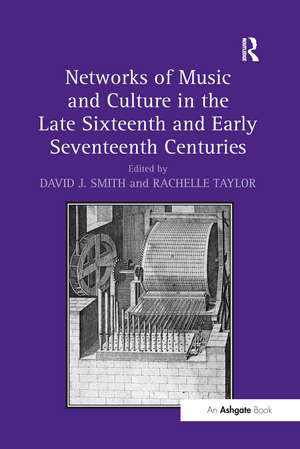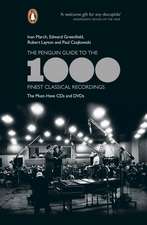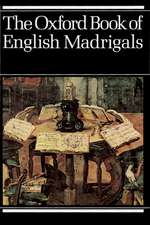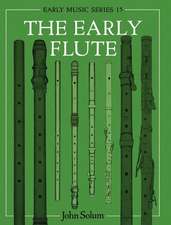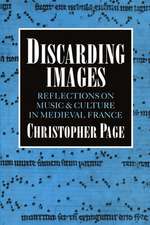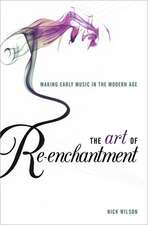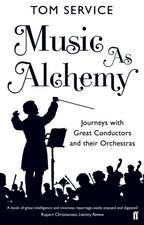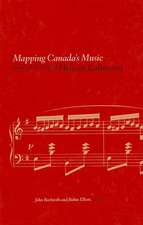Networks of Music and Culture in the Late Sixteenth and Early Seventeenth Centuries: A Collection of Essays in Celebration of Peter Philips’s 450th Anniversary
Autor David J. Smith, Rachelle Tayloren Limba Engleză Paperback – 19 oct 2016
| Toate formatele și edițiile | Preț | Express |
|---|---|---|
| Paperback (1) | 489.48 lei 6-8 săpt. | |
| Taylor & Francis – 19 oct 2016 | 489.48 lei 6-8 săpt. | |
| Hardback (1) | 1064.19 lei 6-8 săpt. | |
| Taylor & Francis – 28 noi 2013 | 1064.19 lei 6-8 săpt. |
Preț: 489.48 lei
Nou
Puncte Express: 734
Preț estimativ în valută:
93.69€ • 101.80$ • 78.75£
93.69€ • 101.80$ • 78.75£
Carte tipărită la comandă
Livrare economică 21 aprilie-05 mai
Preluare comenzi: 021 569.72.76
Specificații
ISBN-13: 9781138269637
ISBN-10: 1138269638
Pagini: 326
Dimensiuni: 156 x 234 mm
Greutate: 0.46 kg
Ediția:1
Editura: Taylor & Francis
Colecția Routledge
Locul publicării:Oxford, United Kingdom
ISBN-10: 1138269638
Pagini: 326
Dimensiuni: 156 x 234 mm
Greutate: 0.46 kg
Ediția:1
Editura: Taylor & Francis
Colecția Routledge
Locul publicării:Oxford, United Kingdom
Notă biografică
David J. Smith is Head of Music at the University of Aberdeen, where he is also Master of Chapel and Ceremonial Music. He has published on early keyboard music, Scottish music manuscripts and Peter Philips, whose keyboard music he edited for Musica Britannica. He is a General Editor of the Ashgate Historical Keyboard Series. Rachelle Taylor leads an international performing and recording career, with a focus on Renaissance keyboard music. The subject of her PhD dissertation in musicology was the employment of English composers in the Elizabethan and early Jacobean secret services. She teaches music history and literature at McGill University and is music historian at Library and Archives Canada.
Recenzii
'This is a fascinating ... tome'. Early Music Review ’The essays are largely built on new research, and provide both new insights and valuable background information. This book will be a valuable addition to the collections of specialists and music libraries.’ The Consort ’We gain a fuller understanding of composers and their music by viewing them in their historical context: this assertion has been central to musicological research for the past several decades, and it is the premise of this volume of essays. The contributors offer multiple perspectives on the relationships among early modern composers and musicians and the social, cultural, and religious milieux in which they lived and worked.' Sixteenth Century Journal XLV/4 (2014)
Cuprins
List of Figures, List of Tables, List of Music Examples, List of Appendices, Manuscript Sigla and Abbreviations, Notes on Contributors, Foreword, Preface and Acknowledgements, 1. Introduction, 2. The Interconnection of Religious, Social and Musical Networks: Creating a Context for the Keyboard Music of Peter Philips and its Dissemination, 3. The Liber fratrum cruciferorum Leodiensium and the Dissemination of Organ Repertoire in the Netherlands during the Seventeenth Century, 4. The Pious Mr Philips and his Few-Voiced Motets at Isabella’s Confraternity of Our Lady, 5. The Ear of the Lynx: The Musical Legacy of the Accademia dei Lincei, 6. Politics, Religion, Style and the Passamezzo Galliards of Byrd and Philips: A Discussion of Networks Involving Byrd and his Disciples, 7. Musical Rhetoric Lost in Translation: National, Religious and Linguistic Networks and the Determination of Title in Sweelinck’s Organ Variations on Psalm 36, 8. What is a Composer? Problems of Attribution in Keyboard Music from the Circle of Philips and Sweelinck, 9. Orlando Gibbons’s Keyboard Music: The Continental Perspective, 10. A Pattern Recognition Approach to the Attribution of Early Seventeenth-Century Keyboard Compositions using Features of Diminutions, 11. ‘Full of Art, and Profundity’: The Five-Part Consort Pavan as a Medium for Sophisticated Musical Expression and Compositional Cross-Reference in Late Renaissance England, 12. Networking, Patronage and Professionalism in the Early History of Violin Playing: The Case of William Brade (c.1560–1630), 13. Practice and Dissemination of Music in the Catholic Network as Suggested by the Music Collection of Edward Paston (1550–1630) and Other Contemporary Sources, 14. Social Networking in Seventeenth-Century Italy: The ‘Harmonious Letters’ of a Monk-Musician, Bibliography, Index
Descriere
Peter Philips (1561-1628) was an English organist, composer, priest and spy. He was embroiled in multifarious intersecting musical, social, religious and political networks linking him with some of the key international players in these spheres. In this book, Philips’s life and music serve as a touchstone for a discussion of various kinds of network in the late sixteenth and early seventeenth centuries. The study of networks enriches our appreciation and understanding of musicians and the context in which they worked. The wider implication of this approach is a constructive challenge to orthodox historiographies of Western art music in the Early Modern period.
